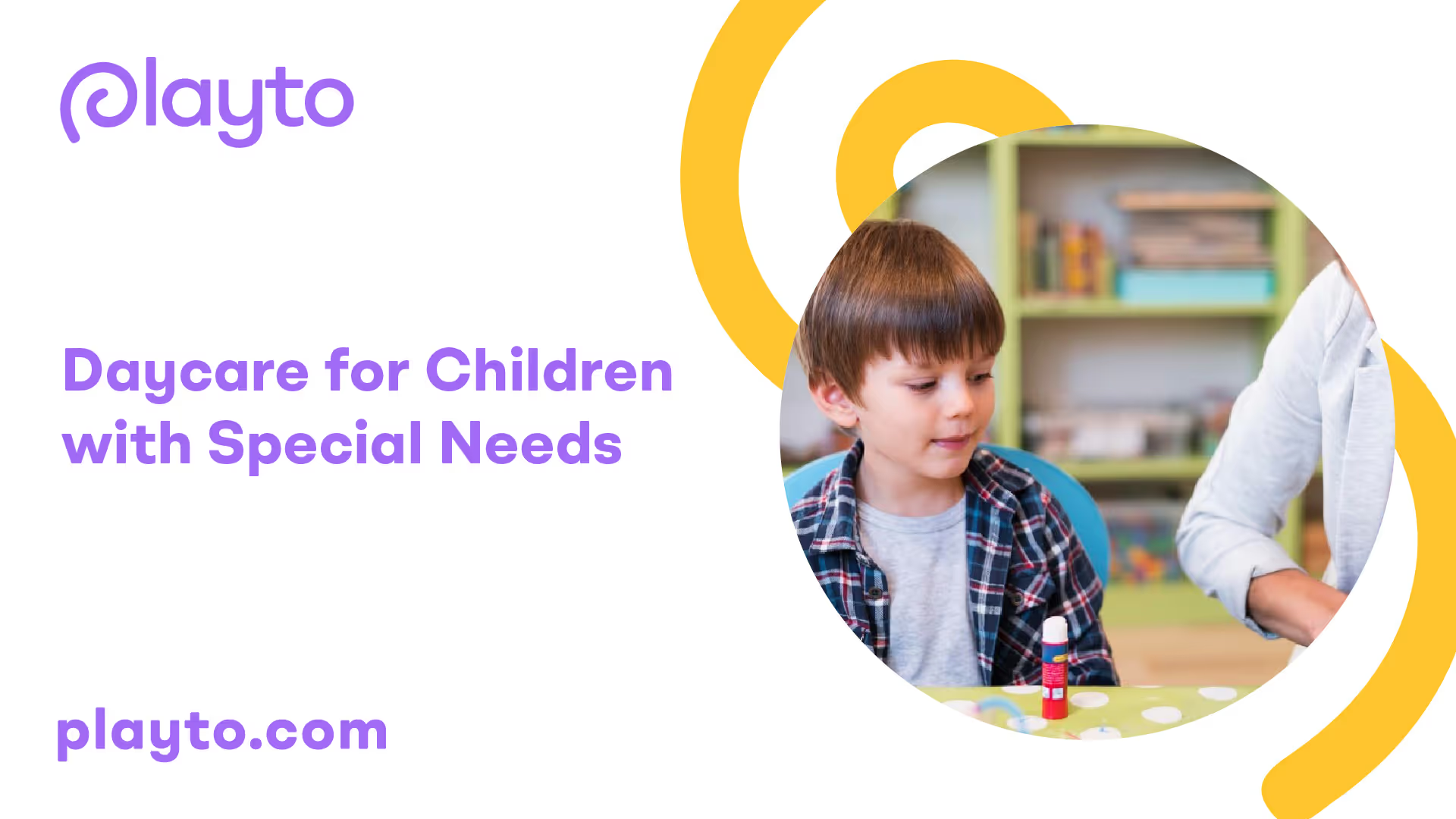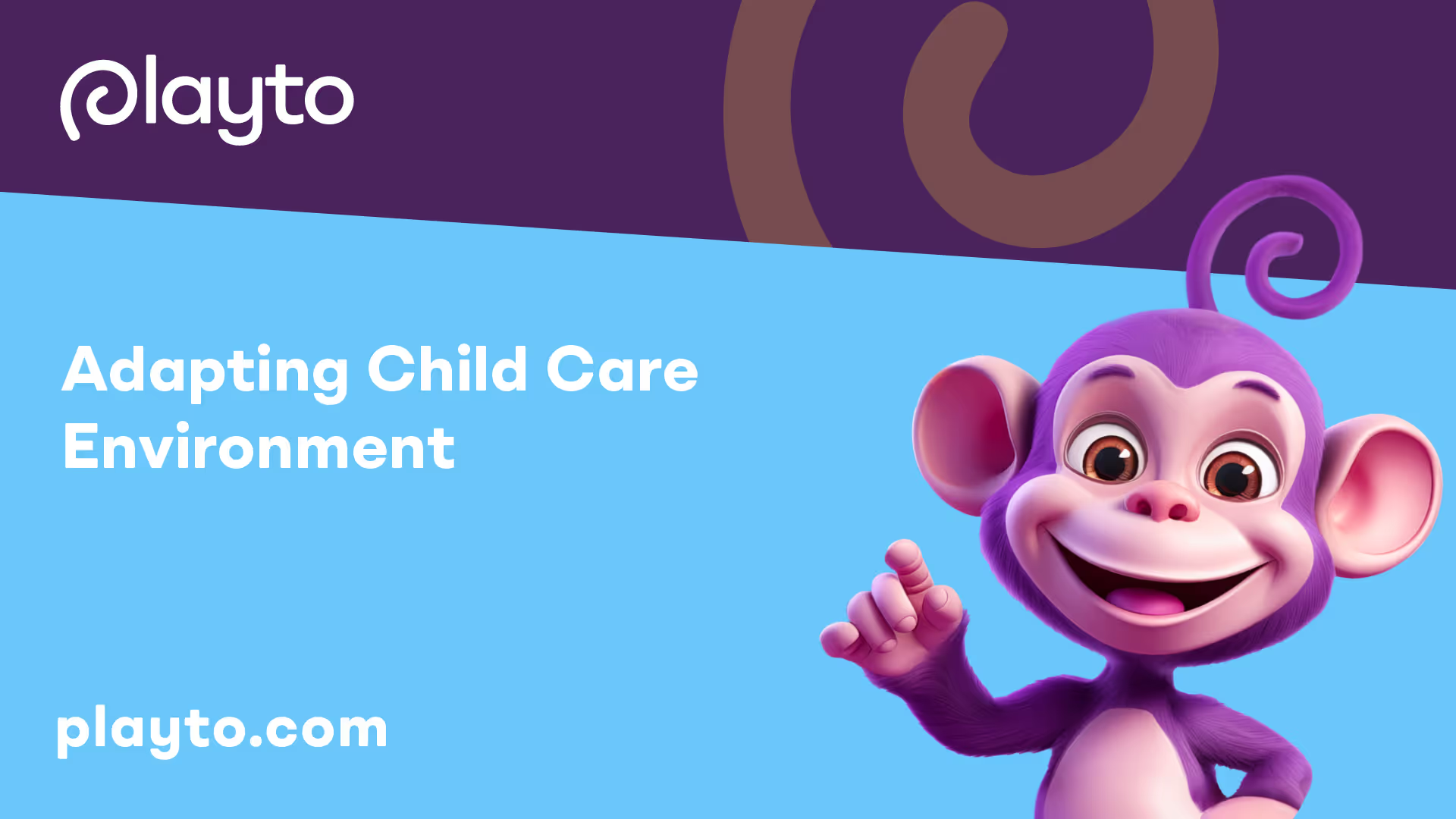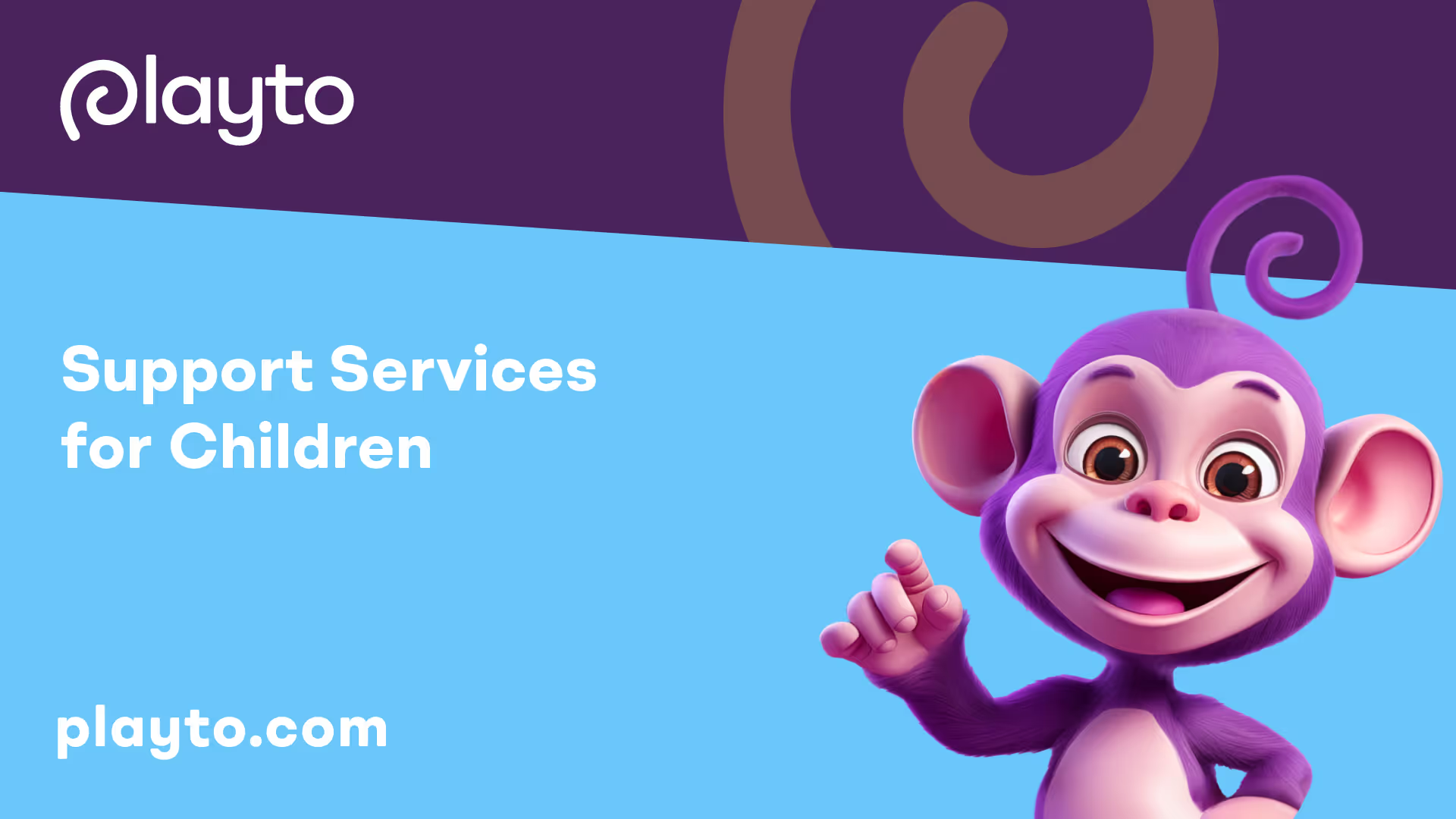Understanding Children with Special Needs
When it comes to providing daycare for children with special needs, it is important for child care providers to have a solid understanding of the unique considerations and requirements associated with caring for these children. This section will explore child care considerations and provide an introduction to the Individualized Education Program (IEP) - a crucial aspect of supporting children with special needs.

Child Care Considerations
Child care providers should approach children with special needs with the understanding that they are first and foremost children, with the same basic needs as typically developing children. While they may require additional time, praise, and specific adaptations to succeed in certain activities, they share many similarities with their peers. It is essential to recognize and respect the individuality of each child with special needs, understanding that the type and severity of disabilities can vary, requiring different levels of modifications within the child care program for full participation [1].
Gathering information about the child and their disability is crucial for child care providers. This information can come from the child's parents as well as professionals working with the child. By understanding the child's unique needs and challenges, child care providers can make informed decisions and implement appropriate modifications to accommodate children with special needs.
Individualized Education Program (IEP) Basics
An Individualized Education Program (IEP) plays a vital role in supporting children with special needs in the early childhood or school setting. Developed collaboratively by a team that includes the child's parents, child care providers, school staff, doctors, therapists, and the child when appropriate, the IEP is a plan that guides the education of the child between the ages of 3 and 21.
The IEP describes the child's unique learning needs, preferred learning methods, appropriate assessments, and the necessary supports and special educational services. It ensures that the child receives a free appropriate public education, tailored to their individual requirements. Regular reviews and updates to the IEP are crucial to ensure that it remains suitable for the child's learning progress and special needs.
By understanding the child care considerations and the basics of the Individualized Education Program (IEP), child care providers can create a supportive and inclusive environment for children with special needs. This knowledge empowers providers to make appropriate modifications, offer tailored support, and ensure that each child's unique needs are met within the daycare setting.
Adapting Child Care Environment
When it comes to providing daycare for children with special needs, it's crucial to create an inclusive and accommodating environment. This involves making modifications for special needs and ensuring small group sizes to meet the unique requirements of each child.

Modifications for Special Needs
Child care providers should gather information about the child and their disability, collaborating with parents and professionals working with the child as valuable resources. By understanding the child's specific needs, providers can make appropriate modifications to the child care environment to ensure inclusivity and support.
Adaptations made to child care programs to include children with special needs are often simple and can benefit all children in the program, not just those with special needs. For example, implementing visual schedules or using visual cues can help children with communication or cognitive challenges, but they can also benefit other children by providing structure and promoting independence [2].
Child care providers should recognize that each child with special needs is unique, with different abilities, challenges, and requirements. For instance, a child with visual impairments will have different needs than a child with behavioral challenges. It is crucial to individualize the adaptations based on the specific needs of each child.
Small Group Sizes
Maintaining small group sizes is essential when providing daycare for children with special needs. Low staff-to-child ratios allow for more one-on-one attention and support, ensuring that each child's needs are met effectively. Children who are younger generally require more adults present and smaller group sizes to cater to their needs appropriately.
In a smaller group, children with special needs can receive individualized attention from their caregivers or teachers, enabling them to participate fully in activities and receive the necessary support. This personalized approach helps build strong relationships between the child and caregiver, fostering a sense of trust and security.
By maintaining small group sizes, child care providers can create an environment that promotes individualized care, allows for better observation and assessment of each child's progress, and facilitates targeted interventions and support when needed.
In addition to modifications and small group sizes, child care providers should also consider the benefits of inclusive child care programs and the laws and regulations surrounding the inclusion of children with special needs. These aspects play a vital role in creating a supportive and nurturing environment for all children, regardless of their abilities.
Support Services for Children
When it comes to providing comprehensive care for children with special needs, support services play a vital role. These services are designed to address the unique needs of children and ensure they receive the necessary support to thrive. Two important support services for children with special needs are early intervention services and Supplemental Security Income (SSI).

Early Intervention Services
Early intervention services are an essential component of supporting children with special needs. These services, as required by the Individuals with Disabilities Education Act (IDEA) Part C, are available for eligible infants and toddlers under the age of 3 who have developmental delays or disabilities. The primary focus of early intervention is to help children learn skills that are typically developed during the first three years of life [5].
Early intervention services are tailored to the specific needs of each child and may include a range of interventions, therapies, and educational support. These services are typically provided within the child's natural environment, such as their home or childcare setting. Early intervention specialists work closely with families and caregivers to develop individualized plans that promote the child's development and enhance their overall well-being.
Supplemental Security Income (SSI)
Supplemental Security Income (SSI) is a program that provides financial assistance to help meet the basic needs of children with physical or mental disabilities, or who are blind. Children with disabilities and limited income and resources may be eligible for SSI. This program aims to ensure that children with special needs have access to essential resources and support.
SSI benefits can help cover various expenses, including housing, food, and medical care. The eligibility criteria for SSI take into account the child's disability, financial resources, and household income. It's important for families to explore the possibility of accessing SSI benefits to help support their child's needs. The "SSI for Children Infographic" provides valuable information on eligibility requirements and application procedures.
By utilizing early intervention services and exploring the potential eligibility for Supplemental Security Income, families can ensure that their children receive the necessary support and resources. These support services work in conjunction with daycare providers and educational institutions to create an inclusive and nurturing environment for children with special needs.
For more information on daycare options for children with special needs, consider exploring our article on daycare for children with special needs. Additionally, our article on daycare subsidies and financial assistance options may provide helpful information on financial resources available to families.
Inclusive Child Care Programs
Inclusive child care programs play a vital role in providing a nurturing and supportive environment for children with special needs. These programs not only benefit children with disabilities but also promote understanding and empathy among typically developing children. In this section, we will explore the benefits of inclusion in child care programs and the laws and regulations that support this inclusive approach.
Benefits of Inclusion
Inclusive child care programs offer a range of benefits for all children involved. Children with disabilities benefit from social interaction, consistent care, and access to quality early childhood education. They have the opportunity to develop important social and communication skills, foster friendships, and build self-confidence.
For typically developing children, inclusion in child care programs provides valuable learning experiences. They learn respect, empathy, and appropriate responses to diversity. They also gain an understanding of individual differences and how to offer help and support to their peers with special needs. By fostering an inclusive environment, child care programs create a foundation for acceptance and inclusivity throughout a child's life.
Laws and Regulations
To ensure that children with special needs receive the support they require, there are laws and regulations in place that child care providers should understand. One essential legislation is the Individuals with Disabilities Education Act (IDEA). This act ensures that all eligible children with disabilities receive a free appropriate public education that meets their unique needs and prepares them for further education, employment, and independent living. It provides information on different aspects of IDEA and available resources for children with disabilities.
IDEA also encompasses special education, which provides specially designed instruction to meet the unique needs of children with disabilities. Special education services are available for students aged 3 to 21 who have identified special needs impacting their ability to learn. The Center for Parent Information and Resources offers an overview of the special education process for children in need of additional support.
Additionally, child care providers should be aware of Supplemental Security Income (SSI), a program that offers financial assistance to children with disabilities or who are blind. SSI helps meet the basic needs of children with limited income and resources. Eligibility and application procedures for SSI are available through the "SSI for Children Infographic".
By understanding and adhering to the laws and regulations related to children with special needs, child care providers can create an inclusive environment that supports the growth and development of all children in their care. These regulations ensure that children with disabilities have equal access to quality child care and educational opportunities.
Inclusive child care programs provide numerous benefits for children with special needs, typically developing children, and society as a whole. By fostering an inclusive environment and understanding the laws and regulations in place, child care providers can create a nurturing space where every child can thrive.
Valuable Resources for Child Care Providers
Child care providers play a crucial role in supporting children with special needs. It is important for them to have access to valuable resources that can enhance their knowledge and understanding of the unique needs of these children. Here are two key resources that can benefit child care providers:
Parent Education and Support
Parent education and support services are available to assist caregivers in caring for and advocating for children with disabilities. These resources can provide child care providers with valuable insights and strategies for supporting children with special needs. By understanding the challenges faced by parents, child care providers can better collaborate and create a supportive environment that meets the individual needs of each child.
Parent education and support programs often offer workshops, training sessions, and online resources. These opportunities can help child care providers gain a deeper understanding of various disabilities, learn effective communication techniques, and acquire strategies for promoting inclusion and positive behavior management.
By actively engaging with parent education and support programs, child care providers can develop stronger partnerships with parents, creating a collaborative approach to supporting the child's development and well-being.
IEP and IFSP Involvement
Child care providers can be valuable members of a team that creates, reviews, and revises Individualized Education Programs (IEPs) or Individualized Family Service Plans (IFSPs) for children in their care. An IEP is a document designed to support children with special education needs, while an IFSP focuses on children under the age of 3.
Being actively involved in the development and implementation of IEPs or IFSPs allows child care providers to contribute their observations and insights about the child's progress, strengths, and challenges. This collaboration helps ensure that the child's individual needs are addressed effectively within the child care setting.
Child care providers can support the implementation of IEPs or IFSPs by incorporating recommended strategies and accommodations into their daily routines. Regular communication with the parents, teachers, therapists, and other professionals involved in the child's care is essential for maintaining a consistent and coordinated approach.
By actively participating in IEP and IFSP meetings and staying informed about the child's goals and objectives, child care providers can provide a supportive and inclusive environment that promotes the child's growth and development.
By utilizing these valuable resources, child care providers can enhance their ability to support children with special needs, promote inclusion, and create a nurturing environment where every child can thrive.
